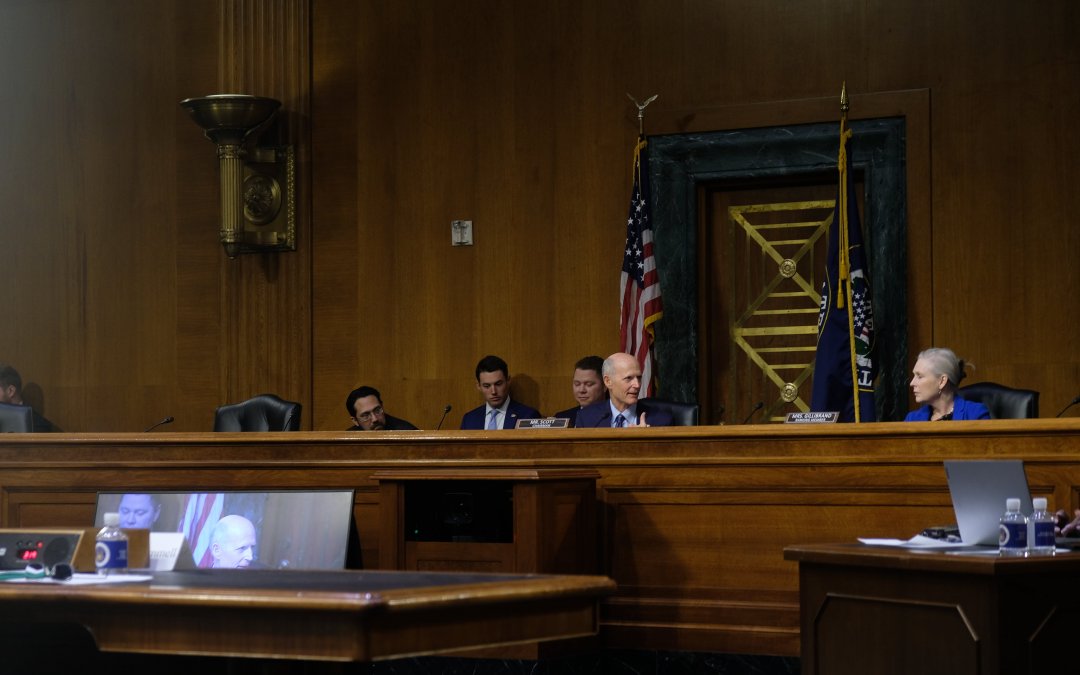WASHINGTON – As tensions rise on Capitol Hill amidst consecutive confirmation hearings and the transition of power in the White House, one committee came together in a rare moment of bipartisanship to discuss a topic that all Americans can relate to: Aging.
“Age is not a partisan issue,” Chairman Rick Scott (R-Fla.) said Wednesday as he opened the Senate Special Committee on Aging’s first hearing of the year. “Whether we like to admit it or not, we are all aging. It impacts every single one of us regardless of political party.”
Ten out of the committee’s 13 members came together to highlight issues facing older Americans like accessible housing, financial security and engagement in the community. These “older Americans” constitute 20% of the country’s population, according to Executive Director of New York StateWide Senior Action Council María Alvarez.
“There are 10,000 people who turn 65 every single day in this country,” she said, as she stated the importance of increased federal funding to accommodate for the growing elderly population.
The committee members themselves are no strangers to aging.
“I think [this committee] is one that is highly relevant for everyone in the United States, but looking at the Senate itself, it’s quite relevant for us,” said Ranking Member Kirsten Gillibrand (D-N.Y.), who is 58.
The average age of all the committee members is 63.
Committee members emphasized that they were on the same team when it came to taking care of the elderly.
“I believe we have a big opportunity in this committee to work in a bipartisan manner to support and improve the lives of America’s current senior citizens,” said Scott.
Even the two youngest members of the committee, Sen. Andy Kim (D-N.J.) and Sen. Angela Alsobrooks (D-Md.) said they can relate as caregivers themselves.
After his father’s major accident last summer that left him unable to walk, Kim said he struggled to navigate caregiving especially during a time of such emergency.
“Even navigating Medicare, I was a United States Congressman at that time, and I was having so much trouble just trying to navigate. I can’t imagine what other Americans have to deal with,” he said.
Accessible housing, costs of prescription drugs, financial security, social isolation, engagement in the community and technology were some of the topics that the committee members discussed with the panel of experts.
When asked about getting rid of spams and scams that a lot of the elderly fall victim to, Charlotte County Sheriff Bill Prummell said “a lot of legislation both on state levels and federal levels isn’t keeping up with technology. It’s years behind.”
Sen. Tommy Tuberville (R-Ala.) mentioned the new administration’s plans for aging Americans.
“With President Trump’s election, Republicans take back the Senate. We’re going to leave no stone unturned,” he said. “I want to make sure that when Americans are asked about their wellness, they respond with hope and optimism, not fear and anxiety.”
The committee emphasized its commitment to promoting wellness among older Americans through resources like nutrition assistance, area agencies on aging, centers for independent living, supporting housing programs, Medicare, Medicaid and social security.
“I believe our job is to make sure these resources exist and are robust enough to support those who need them,” Gillibrand said.

